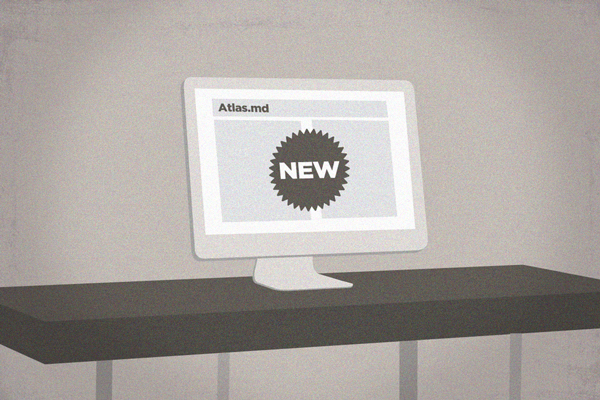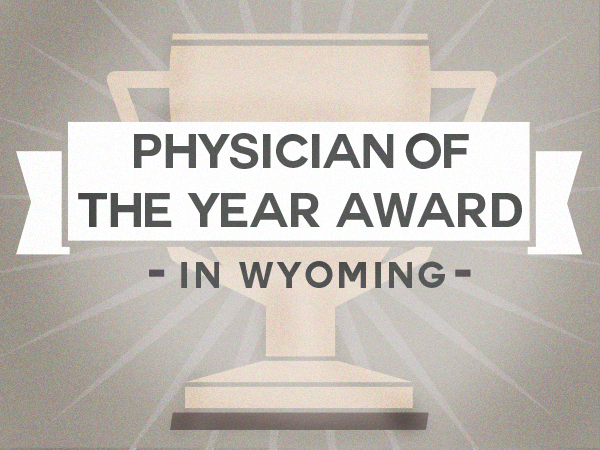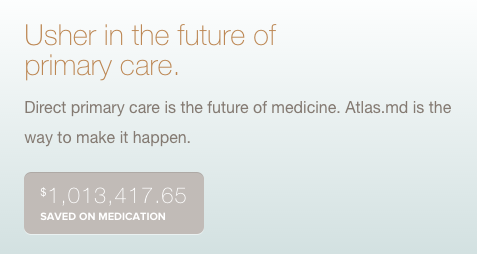
Atlas.md is growing. Fast. To keep up with all the movement, we like to spend some extra time behind the scenes to make sure the features you use the most are in tip-top shape. So even though most of the feature improvements you’ll read about below aren’t visible up front, you can rest easy knowing things are humming right along beneath the surface. Let’s go.
Database Optimization
We’re always maintaining database optimization, but this time we took an extra long peek under the hood. As databases get bigger (read: more patient, drugs and general metadata is stored) they also tend to get sluggish from having to crunch all that additional info. Two things become super important to maintain a smooth ride at that point: targeted indexing and efficient querying. Don’t worry, you don’t need to know what those things mean to understand how we improved them: we found all the spots that could possibly act as a bottleneck and we set out to prevent slowness from happening in the first place.
additional info. Two things become super important to maintain a smooth ride at that point: targeted indexing and efficient querying. Don’t worry, you don’t need to know what those things mean to understand how we improved them: we found all the spots that could possibly act as a bottleneck and we set out to prevent slowness from happening in the first place.
This was fairly simple in most cases – we just stepped outside the box and approached things from a different angle. But it wasn’t all fun and games. Imagine a set of data likened to a tired and cranky five year old. This data required special attention from a dedicated server to make it happy. So we obliged. And once it got its desired one-on-one attention it performed beautifully, smiling and giving instantaneous results in most cases. So there you have it. The most crucial searchable data in Atlas.md now have their own special room with their own special toys where they happily sit and wait to be used by you.
A Brighter Future for Mailboxes
 A few years ago when we developed the Mailbox integration (reminder: that thing where you connect your mailbox to Atlas.md so it can smartly read your relevant emails and effortlessly keep you connected to your patients) we had no idea if it would be a hit or not. So we took a leap of faith, and we’re glad we did – it’s one of the most widely-used features of Atlas.md. Fast forward to today, and it’s time to future-proof the process, which means going back to the drawing board and finding a new and better way to connect, fetch and parse data given the Mailbox’s blatant popularity. This is a tall order, so we broke it up into smaller pieces. To kick things off in Phase One, we’re making sure everyone’s mailboxes are checked and messages are fetched more regularly and consistently. Plus, it’s taking less effort from our server to do so. Now that’s what we call setting a strong foundation.
A few years ago when we developed the Mailbox integration (reminder: that thing where you connect your mailbox to Atlas.md so it can smartly read your relevant emails and effortlessly keep you connected to your patients) we had no idea if it would be a hit or not. So we took a leap of faith, and we’re glad we did – it’s one of the most widely-used features of Atlas.md. Fast forward to today, and it’s time to future-proof the process, which means going back to the drawing board and finding a new and better way to connect, fetch and parse data given the Mailbox’s blatant popularity. This is a tall order, so we broke it up into smaller pieces. To kick things off in Phase One, we’re making sure everyone’s mailboxes are checked and messages are fetched more regularly and consistently. Plus, it’s taking less effort from our server to do so. Now that’s what we call setting a strong foundation.
Outgoing Emails Get Some Attention, Too
 We’ve always relied on Amazon Web Services SES to help deliver your emails to patients. It’s a really big part of why Atlas works in reaching so many people every day. Remember when you had to verify your email address before it would work? We’ve integrated Amazon Web Services even deeper into the EMR so you don’t have to prove you’re you anymore… we’ll just know. Bonus: this makes us even more compliant with anti-spam rules. If you’re all about the details, that means all emails sent out by Atlas are now fully SPF (no, not the sunscreen), DKIM and DMARC (do these sound like entertainers to anyone else?) compatible. This alphabet soup tastes like the three most important spam control protocols in effect for modern emailing, and we think that’s delicious.
We’ve always relied on Amazon Web Services SES to help deliver your emails to patients. It’s a really big part of why Atlas works in reaching so many people every day. Remember when you had to verify your email address before it would work? We’ve integrated Amazon Web Services even deeper into the EMR so you don’t have to prove you’re you anymore… we’ll just know. Bonus: this makes us even more compliant with anti-spam rules. If you’re all about the details, that means all emails sent out by Atlas are now fully SPF (no, not the sunscreen), DKIM and DMARC (do these sound like entertainers to anyone else?) compatible. This alphabet soup tastes like the three most important spam control protocols in effect for modern emailing, and we think that’s delicious.
Don’t Forget The Stuff You Can See!
So far we’ve talked about invisible updates, but there are a couple you’ll notice on the front end, too. For example, Atlas.md now supports multiple credit cards for companies whereas before only patients were graced with this feature. Oh, and now you can send your patients a welcome email even if you enroll them manually. We’re not leaving anyone out!
 Quality over quantity. That’s what’s being praised via the Physician of the Year Award in Wyoming. So without further ado, a very well-deserved congratulations goes out to Dr. Tracy for earning this award. Not only is he one of the pioneers of Direct Care, he’s done it so well, in fact, that he’s being recognized on a state level. That means he beat out all the traditional docs for the title… which tells us he (and his EMR… which happens to be Atlas.md!) is doing something really right.
Quality over quantity. That’s what’s being praised via the Physician of the Year Award in Wyoming. So without further ado, a very well-deserved congratulations goes out to Dr. Tracy for earning this award. Not only is he one of the pioneers of Direct Care, he’s done it so well, in fact, that he’s being recognized on a state level. That means he beat out all the traditional docs for the title… which tells us he (and his EMR… which happens to be Atlas.md!) is doing something really right.







